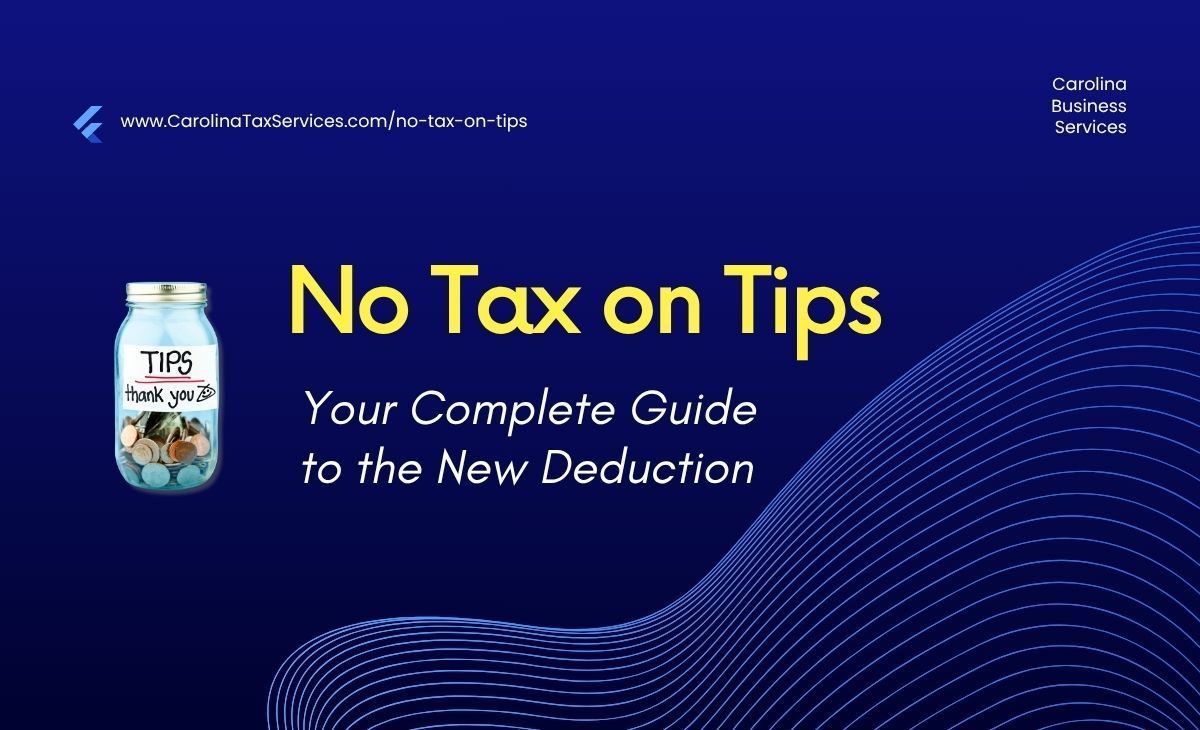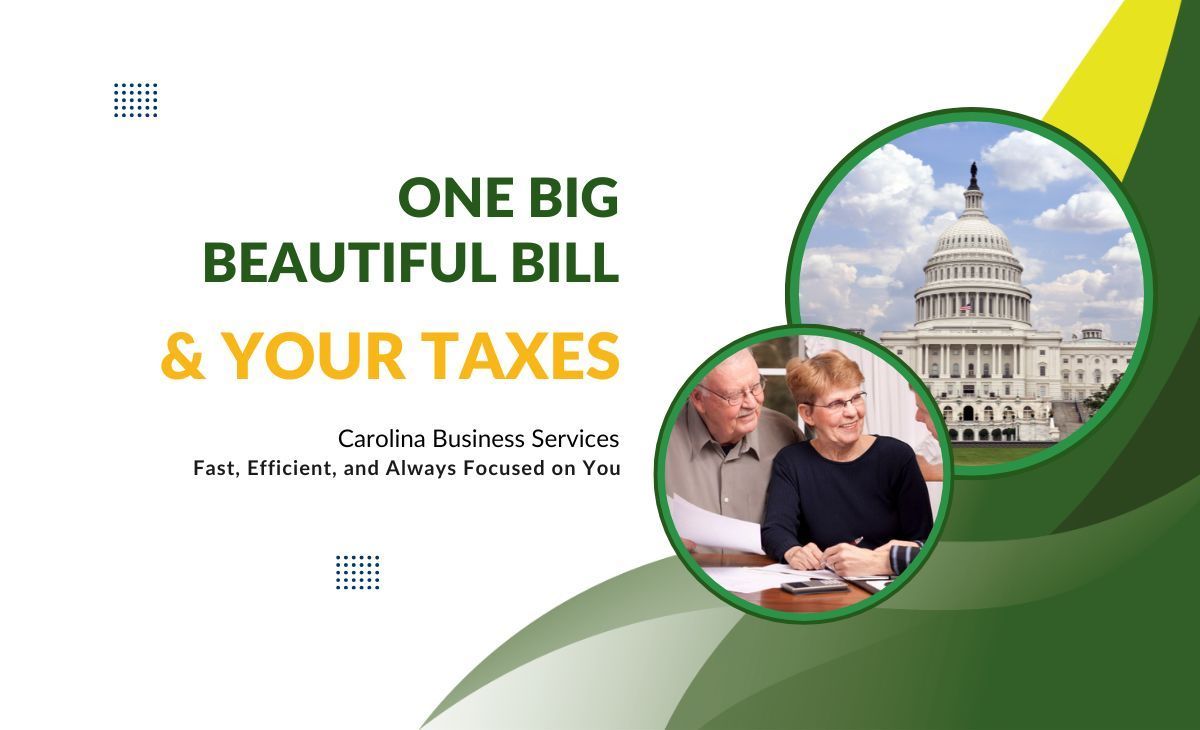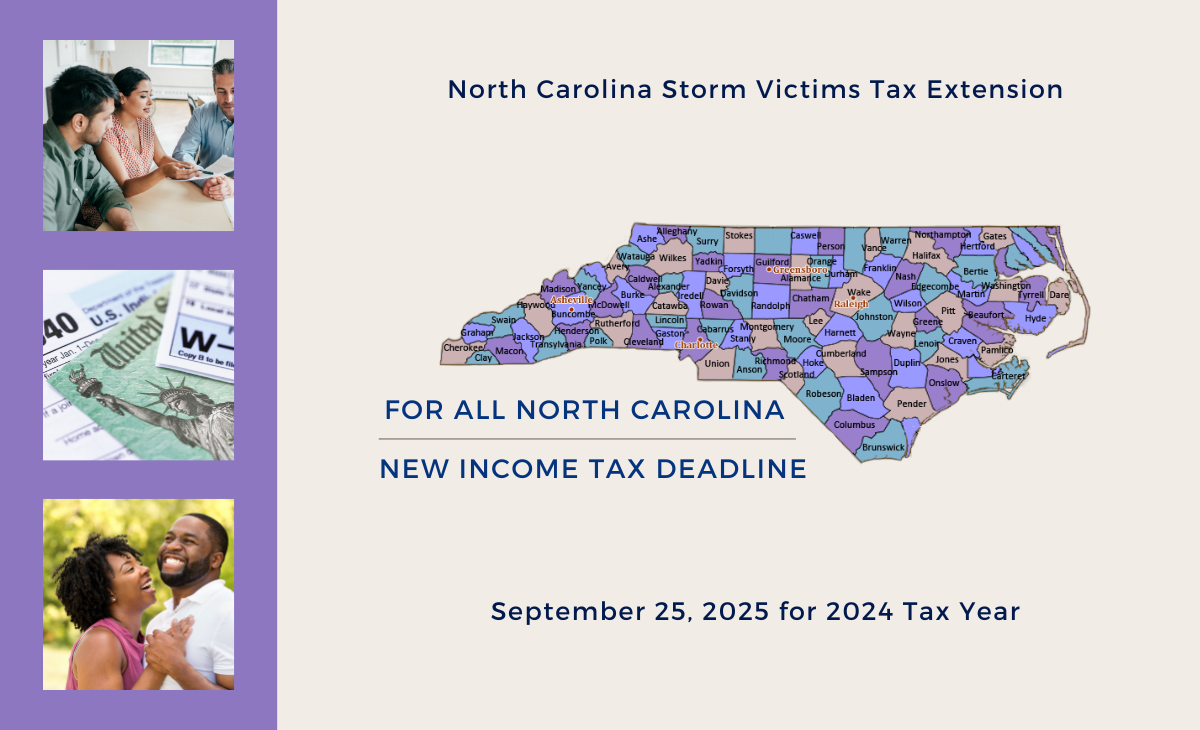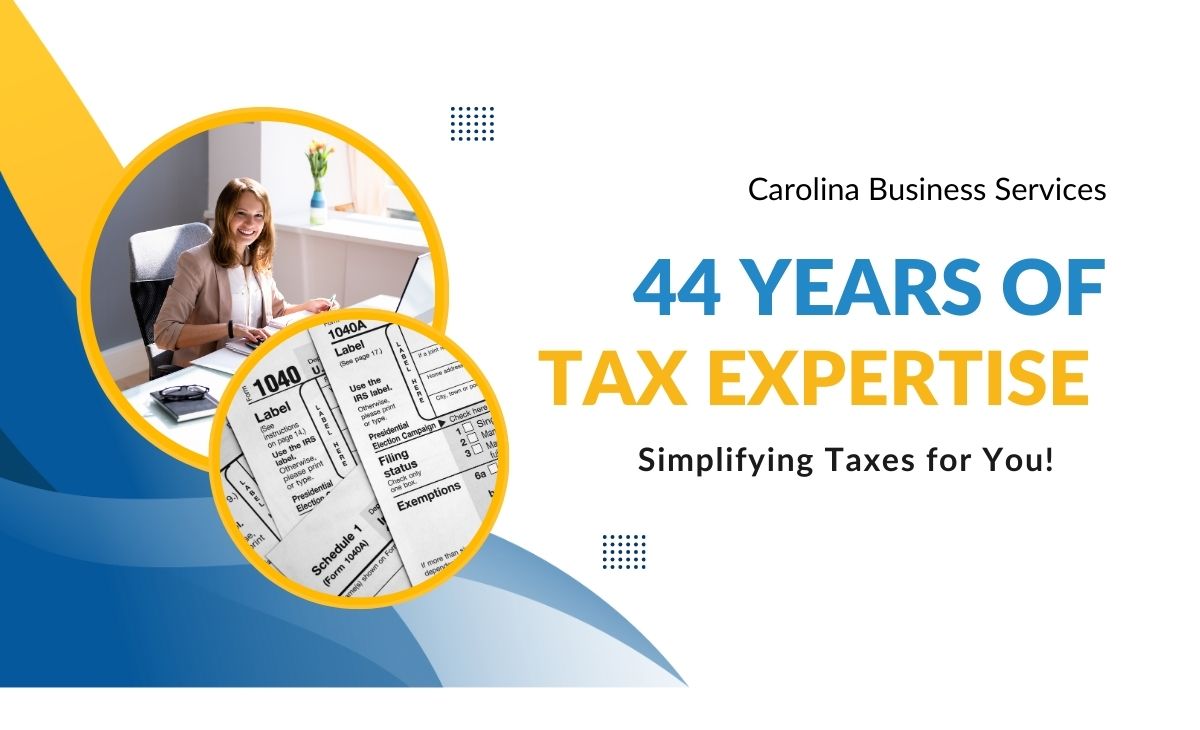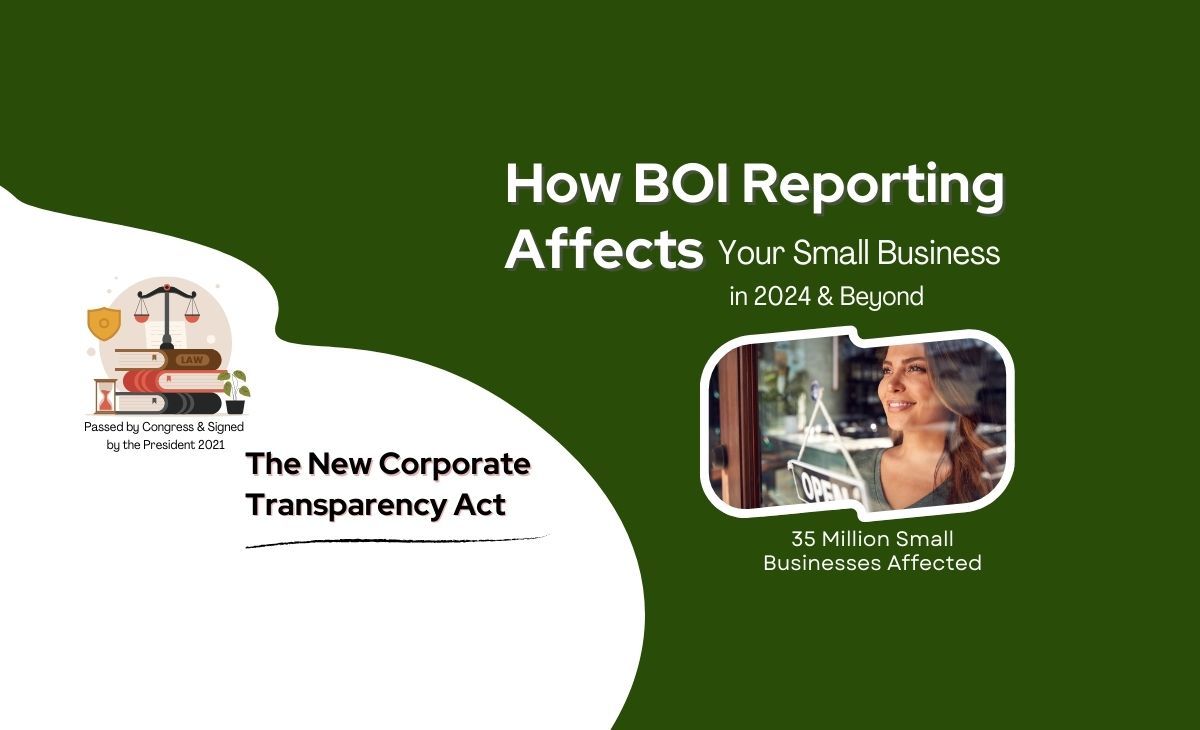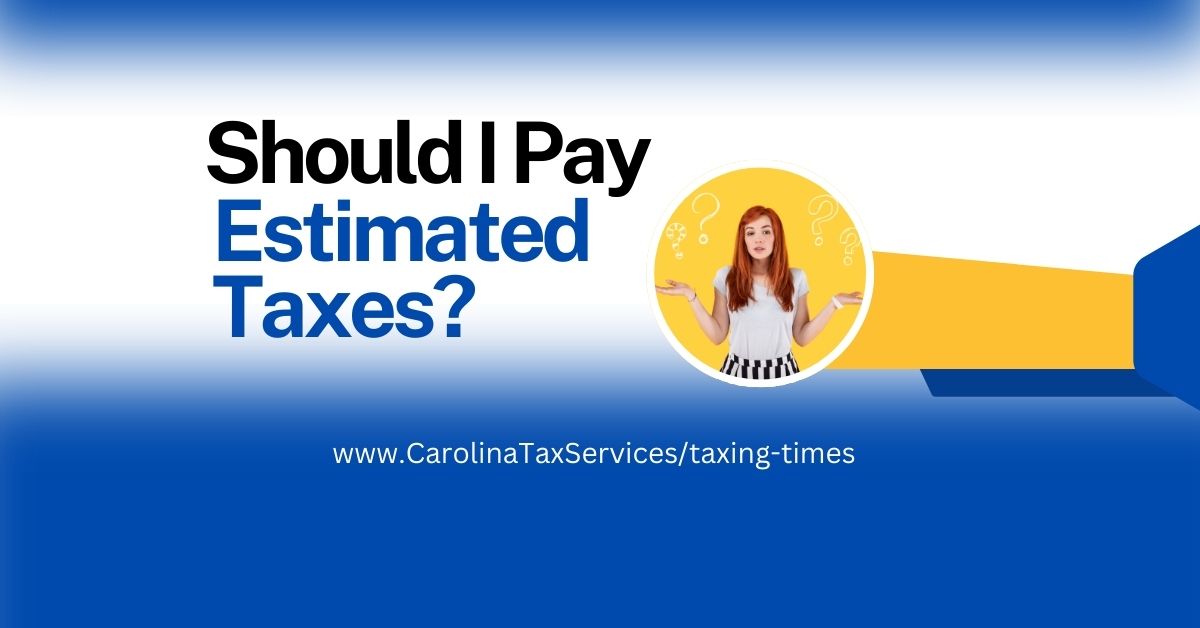Senior Tax Benefits: Keep More of Your Retirement Income
New $6,000 Tax Deduction for Seniors Age 65+
Retirement should be about enjoying life, not worrying about taxes. If you're 65 or older and paying federal income tax, the One Big Beautiful Bill tax changes may have dramatically reduced what you owe. The new $6,000 additional deduction means many seniors who previously paid taxes will now owe little to nothing. Here's what changed and how it affects you.

Understanding Tax Terms
Before we dive in, here are common tax terms you'll see throughout this guide:
AGI (Adjusted Gross Income): Your total income from all sources (wages, Social Security, retirement withdrawals, investments) minus specific deductions like IRA contributions and student loan interest. This is the number used to determine your tax bracket.
MAGI (Modified Adjusted Gross Income): Your AGI with certain income added back in, such as tax-exempt interest and excluded foreign income. The IRS uses MAGI to determine eligibility for deductions and credits.
Combined Income: A formula the IRS uses to determine if your Social Security benefits are taxable.
Credit: A dollar-for-dollar reduction in the amount of tax you owe.
Deduction: Reduces the amount of income subject to tax.
OBBB: One Big Beautiful Bill Act (new tax law signed July 4, 2025)
Phase-Out: The income level where a deduction or credit starts to decrease.
RMD (Required Minimum Distribution): Mandatory withdrawals from traditional retirement accounts starting at age 73.
Standard Deduction: A fixed dollar amount that reduces your taxable income. You can take the standard deduction instead of itemizing individual expenses.
NEW for 2025:
Enhanced Tax Benefits for Seniors
The One Big Beautiful Bill (OBBB) created valuable new tax breaks specifically for seniors.
Additional $6,000 Standard Deduction
If you're 65 or older, you now receive an additional $6,000 standard deduction on top of the regular amounts.
How it works:
- $6,000 deduction if you're age 65+
- $12,000 total deduction if both spouses are age 65+ (married filing jointly)
- Available for tax years 2025-2028
- Phases out if MAGI exceeds $75,000 (single) or $150,000 (married filing jointly), eliminating the deduction completely at $175,000 (single) or $250,000 (married filing jointly)
Real-world example:
Single senior, age 65-PLUS:
- 2025 standard deduction: $15,750 (base) + $2,000 (age 65+) + $6,000 (OBBB) = $23,750
Married couple, both age 65-PLUS:
- 2025 standard deduction: $31,500 (base) + $3,200 (age 65+ both) + $12,000 (OBBB both) = $46,700
That married couple can now earn $46,700 in income before paying any federal income tax—a substantial increase that puts real money back in their pockets.
Important: This enhanced deduction expires after 2028 unless Congress extends it.
What This Means for You
For many seniors, this change means:
- Paying little to no federal income tax on retirement income
- Keeping more of your Social Security benefits untaxed
- Greater financial flexibility for healthcare, living expenses, and enjoying retirement
Understanding Social Security Taxation
Not all Social Security benefits are taxed. Whether yours are depends on your combined income—and understanding this can help you keep more of your benefits. Many of our clients are surprised to learn they don't owe taxes on their Social Security, especially with the new 2025 deduction.
Will Your Benefits Be Taxed?
The IRS uses a calculation called "combined income" to determine if your Social Security benefits are taxable.
Here's what counts:
- Your wages, pensions, and retirement withdrawals
- Investment income and interest
- Half of your Social Security benefits
- Add those together, and you have your combined income. Compare that number to the thresholds below to see if your benefits are taxable.
2025 Taxation Thresholds
Single filers:
- Under $25,000: Benefits are not taxable
- $25,000 to $34,000: Up to 50% of benefits may be taxable
- Over $34,000: Up to 85% of benefits may be taxable
Married filing jointly:
- Under $32,000: Benefits are not taxable
- $32,000 to $44,000: Up to 50% of benefits may be taxable
- Over $44,000: Up to 85% of benefits may be taxable
Married filing separately: Benefits are generally taxable regardless of income.
Important Clarifications
"Up to 85% taxable" doesn't mean you pay 85% in taxes. It means up to 85% of your benefits count as taxable income, which is then taxed at your regular tax rate.
Example: If you receive $30,000 in Social Security and 85% is taxable, that means $25,500 counts as taxable income. If you're in the 12% tax bracket, you'd owe about $3,060 in taxes on those benefits—not $25,500.
The new $6,000 senior deduction reduces your taxable income, which can lower or eliminate taxes on your Social Security benefits. If you're not sure how this affects your specific situation, a tax professional can run the numbers and show you exactly what to expect.
How to Avoid Surprises
Consider having federal taxes withheld directly from your Social Security benefits. This prevents owing a large sum at tax time and helps you budget throughout the year.
Retirement Account Withdrawals:
What You Need to Know
When you withdraw money from traditional IRAs and 401(k)s, those withdrawals count as taxable income. The good news? The new senior deduction significantly increases how much you can withdraw without owing federal tax.
Required Minimum Distributions (RMDs)
Once you turn 73, you must start taking money out of traditional retirement accounts—even if you don't need it. This is called a Required Minimum Distribution.
Here's what you need to know:
- RMDs begin the year you turn 73
- The amount is based on your account balance and IRS life expectancy tables
- Failing to take your RMD results in a steep 25% penalty on the amount you should have withdrawn
- Roth IRAs don't have RMDs during your lifetime
How the new deduction helps: With the enhanced standard deduction, you have more room to take withdrawals without owing tax. A married couple both age 65+ can withdraw up to $46,700 before owing any federal income tax. A single filer age 65+ can withdraw up to $23,750 tax-free.
Other Valuable Tax Benefits for Seniors
Beyond the new OBBB deduction, several other tax benefits can help reduce your tax burden in retirement.
Medical and Dental Expense Deduction
Healthcare costs often increase in retirement, but you can deduct medical expenses that exceed 7.5% of your adjusted gross income.
Qualifying expenses include:
- Doctor visits, hospital stays, and surgeries
- Prescription medications
- Dental and vision care
- Long-term care insurance premiums
- Medical equipment and supplies
- Mileage to medical appointments (at the current IRS rate)
Example: If your AGI is $40,000 and you have $5,000 in medical expenses, you can deduct $2,000 ($5,000 minus 7.5% of $40,000).
Credit for the Elderly or Disabled
If you're 65 or older (or retired on permanent disability) and meet income requirements, you may qualify for this tax credit.
How it works:
- Credit ranges from $3,750 to $7,500
- Reduces your tax bill dollar-for-dollar
- Income limits apply (relatively low thresholds)
- Less common but valuable if you qualify
Refer to IRS Schedule R for eligibility requirements and how to claim this credit.
Qualified Charitable Distributions (QCDs)
If you're 70½ or older, you can transfer up to $100,000 directly from your IRA to charity. This strategy satisfies your RMD without increasing your taxable income—a significant benefit for many seniors.
Why this matters: The donation doesn't count as income, which can help you avoid higher tax brackets, reduce taxes on Social Security benefits, and lower Medicare premiums.
Property Tax Relief
Many states offer property tax exemptions, deferrals, or circuit breakers for seniors. These vary significantly by state and locality.
Check your state's department of revenue or tax assessor's office for available programs in your area.
Managing Investment Income
in Retirement
Investment income—including dividends, interest, and capital gains—affects your tax situation. Understanding how different investments are taxed can help you keep more of what you earn.
Tax-Advantaged Investments
- Municipal bonds: Interest is typically exempt from federal tax (and sometimes state tax)
- Qualified dividends: Taxed at lower capital gains rates (0%, 15%, or 20%) instead of ordinary income rates
- Long-term capital gains: Holding investments over one year results in lower tax rates
Tax Planning Strategies
Timing matters: With the higher standard deduction for seniors, you may have more room to realize capital gains without owing tax. Consider selling investments in years when your other income is lower.
Tax-loss harvesting: If you have investments that have lost value, selling them can offset gains from profitable investments. You can deduct up to $3,000 in net losses against ordinary income each year.
Working with a professional: Investment tax planning gets complicated when you're balancing Social Security taxation, RMDs, and capital gains. A tax advisor can help you time your investment decisions to minimize your overall tax burden.
Pension Income and Annuities
If you receive pension or annuity payments, understanding how they're taxed helps you plan your overall retirement income strategy.
How Pension Income is Taxed
The tax treatment of your pension depends on how it was funded:
- Traditional employer pensions: If your pension was funded with pre-tax dollars (the most common scenario), the full amount you receive is taxable as ordinary income.
- After-tax contributions: If you contributed to your pension with after-tax dollars, a portion of each payment is tax-free. The IRS provides formulas to calculate the taxable versus non-taxable portions.
- Annuity payments: Similar rules apply—payments are taxable based on whether contributions were made pre-tax or after-tax.
Planning with the New Deduction
With the enhanced standard deduction, many seniors with modest pension income may owe little to no federal tax.
For example, a married couple both age 65+ receiving a combined $40,000 pension would fall under the $46,700 standard deduction threshold, meaning their pension income would be tax-free.
Consider coordinating pension income with other retirement withdrawals to maximize your tax-free income each year. Refer to IRS Publication 575 for detailed information on pension and annuity taxation.
State Taxes: What Seniors Need to Know
While federal tax rules apply nationwide, your state's tax treatment of retirement income can significantly impact how much you keep.
North Carolina Tax Benefits for Seniors
If you live in North Carolina, here's good news: the state does not tax Social Security or Railroad Retirement benefits. However, other retirement income—including 401(k) withdrawals, IRA distributions, and pensions—is taxed at North Carolina's flat rate of 4.50%.
Exception: If you're a federal, military, North Carolina state, or local government retiree with at least five years of service credit as of August 12, 1989, your retirement benefits are fully exempt from North Carolina income tax under the Bailey decision.
Property Tax: North Carolina also offers property tax relief for qualifying seniors age 65 and older through the Homestead Exemption program.
States with Favorable Tax Treatment
No income tax states: Nine states don't tax income at all—Alaska, Florida, Nevada, South Dakota, Tennessee, Texas, Washington, Wyoming, and New Hampshire (with limited exceptions). If you're considering relocating in retirement, these states eliminate state income tax concerns entirely.
Social Security taxation: Currently, 38 states don't tax Social Security benefits. If you're planning to move or have questions about how another state would tax your retirement income, research that state's specific rules before making decisions.
State-Specific Senior Benefits
Beyond income taxes, many states offer:
- Property tax exemptions or freezes for seniors
- Sales tax relief on certain items
- Prescription drug assistance programs
- Utility bill assistance
Contact your state's department of revenue or local senior services office to learn what programs you may qualify for in your area.
Year-End Tax Planning Strategies
for Seniors
Smart planning before December 31 can significantly impact your tax bill. With the new senior deduction, year-end strategies may work differently than in past years.
Income Management
Managing taxable income: With the enhanced standard deduction ($23,750 single, $46,700 married both 65+), many seniors have more room to realize income without owing federal tax. Consider whether it makes sense to take additional retirement withdrawals or convert traditional IRA funds to Roth accounts while staying under the taxable threshold.
Watch phase-out thresholds: If your modified adjusted gross income approaches $75,000 (single) or $150,000 (married filing jointly), consider deferring income to next year to preserve the full $6,000 senior deduction.
Deduction Timing
Prepay property taxes: If you itemize deductions, paying your January property tax bill in December can increase this year's deductions. However, with the higher standard deduction, fewer seniors will benefit from itemizing.
Bunch medical expenses: If you're close to the 7.5% AGI threshold for medical expense deductions, consider scheduling and paying for elective procedures in one year rather than spreading them across two years.
Charitable contributions: Donations made by December 31 count for the current tax year.
RMD Strategy
Don't miss the deadline: Required Minimum Distributions must be taken by December 31 (except your first RMD, which can be delayed until April 1 of the following year). Missing this deadline results in a steep 25% penalty.
Qualified Charitable Distributions: If you're 70½ or older and charitably inclined, consider directing your RMD directly to charity. This satisfies your distribution requirement without increasing your taxable income—a strategy covered in detail earlier in this article.
When to Get Professional Help
Tax planning becomes more complex in retirement, especially with the new OBBB provisions. Consider working with a tax professional if you:
- Have multiple income sources (Social Security, pensions, retirement withdrawals, part-time work)
- Own rental property or run a small business
- Take RMDs from multiple retirement accounts
- Are considering Roth conversions or other tax strategies
- Have significant medical expenses that may exceed the 7.5% AGI threshold
- Receive income from multiple states or are planning to relocate
- Want to optimize your tax situation with the new senior deduction
- Feel uncertain about how the enhanced deduction affects your overall tax picture
Professional guidance can often save far more than it costs, especially with new tax provisions and complex retirement income situations. A tax advisor can help you coordinate all the moving pieces—Social Security taxation, RMDs, investment income, and the OBBB deduction—to minimize your tax burden year after year.
Expert Tax Assistance for Seniors
At Carolina Business Services, we've spent over 44 years helping seniors navigate retirement taxes. We understand the unique challenges you face—and we stay current on tax law changes like the OBBB provisions so you don't have to.
We specialize in helping seniors:
- Maximize the new $6,000 OBBB senior deduction and understand how phase-outs affect you
- Determine if your Social Security benefits are taxable and plan strategies to minimize taxation
- Coordinate RMDs, retirement withdrawals, and investment income for optimal tax efficiency
- Identify all available credits and deductions, including medical expenses and charitable distributions
- Handle IRS correspondence and resolve tax issues that arise during retirement
- Develop year-round tax strategies that work with your retirement income
Our approach is simple: We translate complex tax rules into plain language so you understand exactly what matters for your situation. You work with the same experienced team year after year—not whoever happens to be available during tax season.
Whether your taxes are simple or involve multiple income sources, rental properties, or multi-state filing, we're here to help you keep more of your retirement income.
Call us at 828-287-9595 or visit our contact page to get in touch.
Carolina Business Services
Professional Tax Preparation Services, Always Focused on You
Key Takeaways for Seniors
Big changes in 2025:
- Additional $6,000 standard deduction for age 65+ (per person)
- Available for tax years 2025-2028
- Significantly reduces tax burden for most seniors
- Total standard deduction: $23,750 (single), $46,700 (married both 65+)
Social Security:
- Whether benefits are taxed depends on combined income
- Many seniors pay little to no tax on benefits with the new deduction
- New senior deduction helps reduce or eliminate taxation
Retirement accounts:
- RMDs begin at age 73
- Higher standard deduction means more tax-free withdrawals
- Consider Roth conversions and strategic withdrawal timing
Other benefits:
- Medical expense deduction for costs over 7.5% of AGI
- Qualified Charitable Distributions (QCDs) for those 70½+
- Credit for elderly or disabled (if income qualifies)
- State-specific senior benefits vary widely
Bottom line: The new OBBB provisions create substantial opportunities for seniors to reduce taxes. Understanding these changes and planning strategically may keep thousands of dollars in your pocket each year.
Frequently Asked Questions
Do all seniors get the $6,000 additional deduction?
The additional $6,000 deduction is available to taxpayers age 65+ during the tax year. It phases out at higher incomes above $75,000 (single) or $150,000 (married filing jointly).
Will the $6,000 senior deduction continue after 2028?
The enhanced $6,000 deduction is currently scheduled for tax years 2025-2028. After 2028, it's set to expire unless Congress extends it.
How does the new deduction affect my Social Security taxation?
The $6,000 deduction reduces your taxable income, which can lower or eliminate taxes on your Social Security benefits. For many seniors, this makes a significant difference.
Can I claim both the standard deduction and the $6,000 senior deduction?
Yes. The $6,000 is added on top of the regular standard deduction. See the real-world examples in this article for total amounts.
Do I have to file taxes if my only income is Social Security?
If Social Security is your only income and you're below the filing threshold, you typically don't need to file. However, filing may be beneficial if you're owed a refund.
What if I turn 65 partway through the tax year?
You qualify for the additional senior deduction if you turn 65 at any point during the tax year—even on December 31st.
Should I itemize or take the standard deduction?
With the substantially increased standard deduction for seniors, most will benefit from taking the standard deduction.
However, if your itemized deductions (medical expenses, charitable donations, property taxes, etc.) exceed your standard deduction amount, itemizing saves more.
Sources & Related Resources
Official IRS Resources:
- Social Security Benefits Taxation
- Retirement Plans and RMDs:
- Medical and Dental Expenses (Publication 502)
- Credit for Elderly or Disabled (Schedule R)
- Charitable Donations (Publication 526)
- Pension and Annuity Income (Publication 575)
- One Big Beautiful Bill Provisions
- 2025 Tax Adjustments
Social Security Administration:
North Carolina Department of Revenue:
Related Articles from Carolina Business Services:
- Comprehensive guide covering all OBBB provisions for individuals and small businesses: Complete Tax Planning Guide
- Complete overview of the new tax law: One Big Beautiful Bill and Your Taxes
- Essential year-round tax planning strategies: Tax Tips & Free Resources
Disclaimer: This article is for general informational purposes only. Tax laws include many conditions and exceptions that may apply differently to each taxpayer. It is not legal or tax advice. For guidance on your specific situation, consult your tax professional or attorney.


